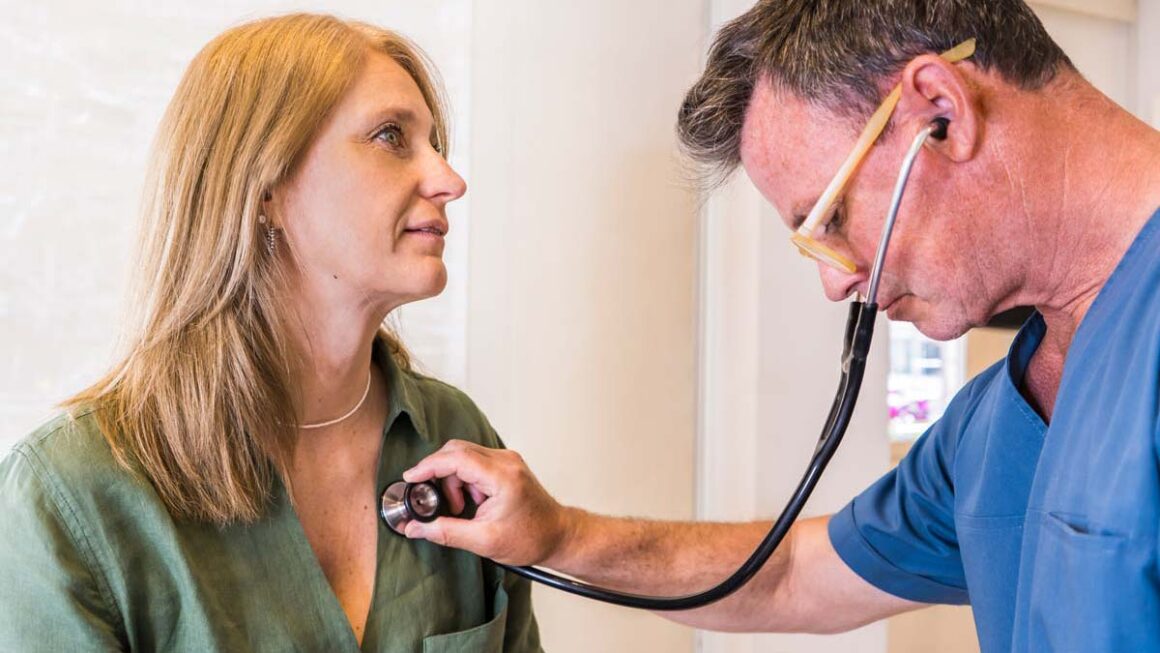What is a check-up?
A check-up is a way of evaluating your general health periodically at various intervals. It aims to identify the presence or the risk factors for the most common diseases like diabetes, and cardiac disorders, as well as genetic conditions. Screening is the key for prevention of diseases before they are evident. Moreover, early diagnosis is both life- and cost-saving.
A check-up takes into account your age, gender, life style, eating habits, personal and familial medical histories, for evaluation of your health status. In this regard, a tendency, any risk factor or the disease itself if present can easily be identified. Then, preventive measures are taken, and required treatments may be started. It is advised that proposed screenings should be continued periodically, even in the absence of any risk factors.
Check-up programmes include taking details of your personal history, evaluation of body fluids (blood, urine, stool etc.), imaging techniques and physical examination. Various options are offered as package programmes. More comprehensive programmes are also available if requested or advised according to your medical history.
Why should we get a regular check-up?
Due to the intensity of daily life or other reasons, most of us ignore our symptoms, even if the signs of a disease are there. Only when the disease begins to interfere with our daily activities do we become aware of it. This situation can be prevented if routine check-ups are carried out at regular intervals.
Who can get a check-up?
 Check-ups are available for any age group. A check-up is the evaluation of your health before you are diagnosed with a disease. If started at an earlier stage of your life, it is more preventtative and beneficial. Since the negative impact of any personal or enviromental factor on health increases the risk for diseases as people age, the chances of diagnosing a disorder during a check-up also increase in later stages of life. Another benefit of getting a check-up at a young age is that a genetic tendency for a disoder may be identified earlier.
Check-ups are available for any age group. A check-up is the evaluation of your health before you are diagnosed with a disease. If started at an earlier stage of your life, it is more preventtative and beneficial. Since the negative impact of any personal or enviromental factor on health increases the risk for diseases as people age, the chances of diagnosing a disorder during a check-up also increase in later stages of life. Another benefit of getting a check-up at a young age is that a genetic tendency for a disoder may be identified earlier.
What are check-up programmes?
Since age, gender, lifesytle, enviromental factors, previous diseases, and familial genetic predispositions are all different for each person, the context of each check-up programme varies accordingly. It may consist of a general screening or it may be very extensive, even including genetic screening.
How are risk factors for diseases identified?
First of all, a very detailed medical history is taken. Taking into consideration the information obtained from your medical history, your risks are analysed using more modern and advanced test parameters including chromosomal analysis and imaging methods. Even though there are no risk factors for a specific condition, you are informed when to repeat the tests or even who should also get checked.
Does a check-up effect health expenses?
Yes. A check-up is very cost effective on both an individual and a country-wide basis. The most beneficial effect of a check-up is its preventative function. In case of detection of a disease, the costs will still be minimal, since the disease is diagnosed as early as possible.
Why Med Expert Clinic?
Our clinic more than meets the requirements of a check-up, with its experienced and up-to-date physicians who keep up-to-date with the latest innovations in laboratory and imaging technologies. In addition, at your request, we are glad to provide you with any necessary reliable professional medical support and follow-up during your treatment.
Which path to follow?
You should begin with getting in touch with us. Then, we will plan a check-up programme for you according to the information you have provided about yourself such as your age, gender, general health. In view of the programmes implemented by our clinic, you will be informed about the ideal programme that meets your needs.
What is the check-up process like? How long does it take?
You will be informed beforehand about any drugs that need to be taken or discontinued before coming for the check-up. When you come to the check-up unit on an empty stomach (approximately 8-10 hours of fasting) on the day of your appointment, your blood and urine samples are taken for analysis. In addition, imaging methods such as heart electrocardiogram (ECG), chest x-ray, and abdominal ultrasound are included in most programmes. According to your age and gender, tests such as mammography and PSA test are performed. If you are over the age of 50, endoscopic examinations are also carried out.
The duration of the check-up varies according to the contents of the investigations. Your results will be available on the same day and/or the following day or two, depending on the scope of the check-up programme.
What is included in our check-up programmes?
We have 8 check-up programmes designed according to our patients’ age and gender with different components:
General check-up programmes:
- For women under 40
- For men under 40
- For women over 40
- For men over 40
Detailed check-up programmes:
- For women under 40
- For men under 40
- For women over 40
- For men over 40


Leave a Reply
You must be logged in to post a comment.